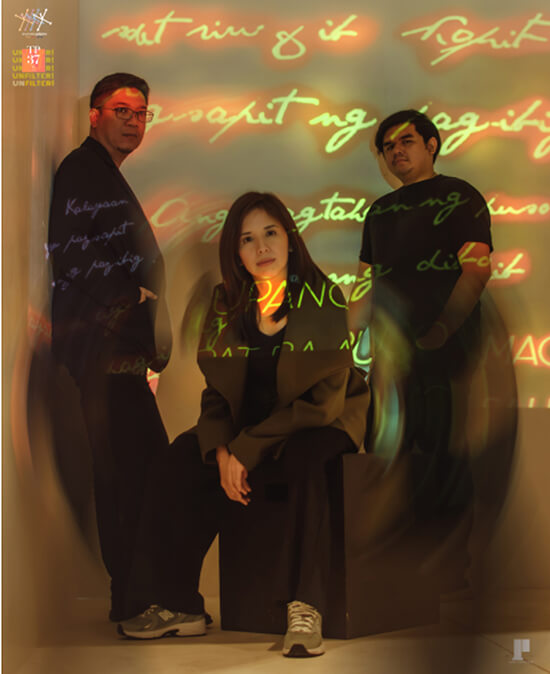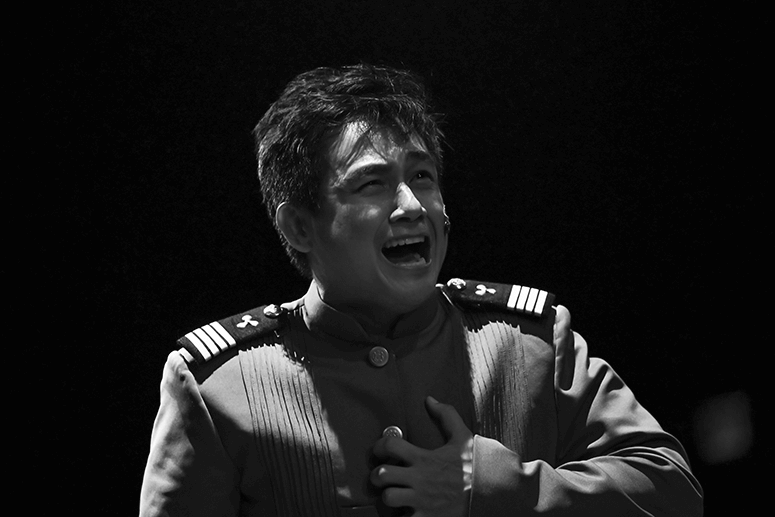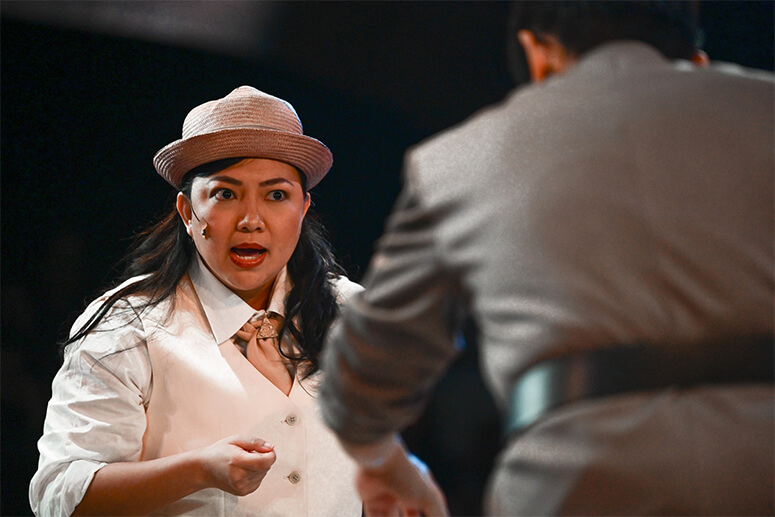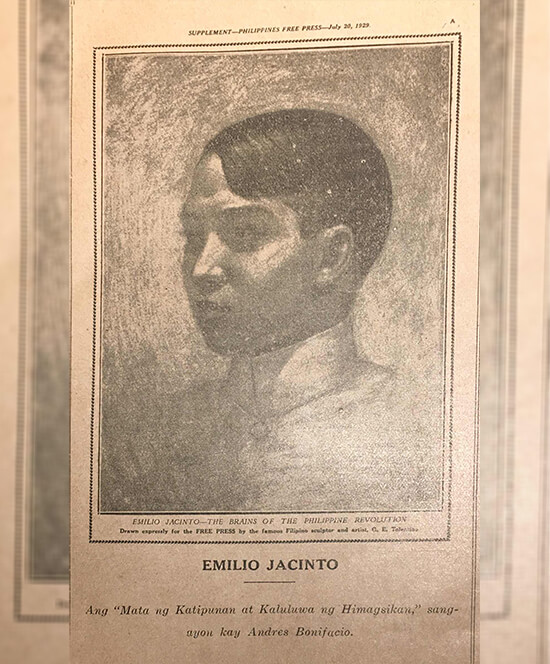The other Emilio
Andres Bonifacio called Emilio Jacinto “ang mata ng Katipunan at ang kaluluwa ng Himagsikan (the eyes of the Katipunan and the soul of the Revolution”)—a far more eloquent title than the ho-hum “Brains of the KKK” which every schoolboy knows but is hard pressed to remember much more.
Indeed, Jacinto was the all-seeing sentient one, and despite producing wonderful poetry, did not have a poet’s dreamy disposition. He was a mover and shaker, and yes, an enabler for the cause of our nation’s freedom.
Truth be told, of all the key players of the Philippine Revolution, Emilio Jacinto is the least known but is also its most unblemished, never sullied by his own second thoughts nor a reputation for being reckless. He comes closest therefore to being that perfect hero to venerate, an even-tempered intellectual but also an action man. He was young but without the conceits of the young, unlike his contemporary Gregorio del Pilar who was overly proud of being a ladies’ man. (They were exactly the same age.)
.jpg)
He was idealistic but could get things done and deliver. Jacinto put together the KKK’s rule book, the Kartilya, setting down in rivetingly convincing prose its vision and mission statements. Media-savvy, he next put together the Katipunan’s newspaper, Kalayaan, which would be our equivalent of Twitter slash X, reputedly growing the organization’s following from 300 to 30,000 virtually overnight. He (and Bonifacio) attained this by writing exclusively in Filipino, reaching far more people than Rizal’s Noli and Fili which were in Spanish. He never lost any battles, fighting a kind of “hit and run” warfare. After Bonifacio’s trial and death, he would retire from the field and became an entrepreneur, founding a cooperative of ranchers and meat-sellers, perhaps the first of its kind, in Laguna. Clever but not cunning, Jacinto would stay loyal to his friend, refusing a position when offered by Mabini a post in the Aguinaldo cabinet. He would also die the requisite romantically early death, succumbing to something described as “brain malaria.”

Pingkian—created by playwright Juan Ekis and musician Ejay Yatco for Tanghalang Pilipino—is, quite simply, the sleeper hit of the year. Despite a densely historical subject about an under-appreciated hero (“pingkian” or “flint” was Jacinto’s code name) and with virtually no publicity, its shows sold out quickly. Long lines composed of an enthusiastic crowd of all ages would routinely show up early to get the choicest seats in the house.
The musicale, which stops short of calling itself a rock and hip-hop opera, officially clocks in at two hours and a half (including a 10-minute intermission). Not quite as long as the epic Oppenheimer, it is nevertheless crammed with 21 infectiously moving songs, performed at breakneck pace. There is never a dull moment. The credit for that goes to the inspired direction of Jenny Jamora and the outstanding ensemble cast. It’s led by Vic Robinson in the title role, a smashing Bituin Escalante as Jacinto’s mother, and Paw Castillo as Andres Bonifacio.

Jamora certainly had her work cut out for her and did a couple of genius moves: surrounding the audience with videos of Jacinto’s words in his own hand (created by GA Fallarme) and casting women in the parts of Jose Rizal (Kakki Teodoro wearing a Rizal’s trademark bowler hat in pink) and the spy Florencio Reyes (Gab Pangilinan who also played the dual role of Jacinto’s love interest, Catalina, pulling off both convincingly as a major acting tour de force). It underlines that words matter—and yes, women matter—but above all, history matters.
Playwright Ekis invited, in fact, public historian Xiao Chua to share insights with the cast. Chua went one further and supplied the vital photographs of the Jacinto documents that were flashed on the screens. The company was next taken on a personal tour of Jacinto’s stomping grounds in Majayjay and Magdalena by no less than the National Commish for Culture and the Arts (NCCA) chairman Ino Manalo.

Make no mistake, our country’s history is a mother lode overflowing with information as well as inspiration, spanning several centuries not even counting those before Magellan arrived. It’s something keenly absent, for example, in Singapore and Hong Kong for all their first-worldliness. On the other hand, Filipino history is incomparably rich in authentic narratives and heroes with dramatic stories just waiting to be told. You could not make up a man like Emilio Jacinto, nor his adventures. His achievements and patriotism cry out to be known by present and future generations. Pingkian is the first to answer that call.

Outstandingly, the NCCA supported this landmark show, as did the prescient Senator Loren Legarda. Senator Legarda’s timing, as always, is impeccable, coming on the eve of Emilio Jacinto’s 150th year of his birth in 2025.
Imagine what Tanghalang Pilipino could do with a Netflix-size budget that could bring this magnificent show to many more people across the country, true to the vision of Jacinto himself. That would be an invitation hard to refuse to revisit our nation’s greatness once more.
* * *
By insistent public demand, and in time for the 125th death anniversary of Jacinto this April, Pingkian: Isang Musikal will have two additional shows at the GSIS theater (near the World Trade Center in Pasay) on April 12, Friday, 3 p.m. and 8 p.m. Tickets are available through Ticketworld, or through bit.ly/PingkianGSIS-3pm and bit.ly/PingkianGSIS-8pm.


